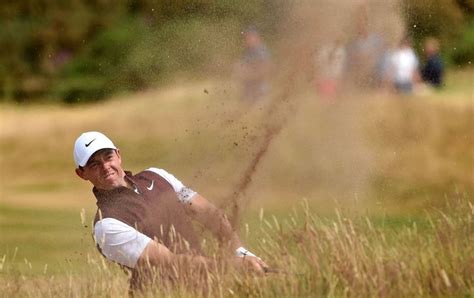
Former UFC champion B.J. Penn was arrested on family abuse charges following the emergence of a video allegedly depicting an altercation.
Honolulu police arrested Jay Dee “B.J.” Penn, 45, on Friday, according to online records. Specific charges remain undisclosed, but the arrest stems from allegations of family abuse. The Honolulu Police Department confirmed the arrest but provided no further details, citing privacy regulations. The incident marks another entry in a series of legal troubles for the UFC Hall of Famer in recent years, raising concerns about his personal conduct. The UFC has not released an official statement regarding the arrest.
The arrest comes after a video circulated on social media allegedly showing Penn involved in a physical altercation. The details in the video are not definitively confirmed, but the footage has ignited public discussion and scrutiny, compounding the gravity of the situation.
Penn, a pioneer in mixed martial arts, is one of the few fighters to win UFC titles in two different weight classes (welterweight and lightweight). He is regarded as one of the most influential and talented fighters of his era.
Background and Previous Controversies
B.J. Penn’s career, though marked by significant achievements, has been overshadowed by several incidents outside the octagon. These controversies have contributed to a complex narrative surrounding the fighter, tarnishing his legacy to some extent.
In 2015, Penn faced allegations of sexual assault by a website owner; however, no charges were filed. He denied the allegations.
In 2019, videos surfaced showing Penn involved in two separate street fights in Hawaii. In one incident, he was knocked down after being punched. These incidents led to criticism and condemnation from the MMA community and UFC President Dana White. White expressed disappointment in Penn’s behavior and questioned his future involvement with the promotion, despite Penn having already concluded his active fighting career.
In that same year, Penn was also accused of domestic violence by his former partner, Shealen Uaiwa. Uaiwa sought a restraining order against Penn, alleging years of physical and emotional abuse. She detailed several incidents in court documents, including allegations of him kicking her and threatening her. The restraining order was granted. Penn denied the allegations through his attorney, claiming the accusations were fabricated.
The recent family abuse charges and arrest add to the existing pattern of legal and personal issues, sparking further concerns about Penn’s well-being and conduct. The accumulation of these incidents raises questions about the support systems available to athletes transitioning out of professional sports and the potential challenges they face.
Legal Ramifications
The legal consequences Penn faces will depend on the specific charges filed against him and the evidence presented in court. Family abuse charges can range from misdemeanors to felonies, depending on the severity of the alleged abuse and any prior record.
If convicted of domestic violence, Penn could face penalties including jail time, fines, mandatory anger management courses, and restrictions on firearm ownership. A conviction could also have long-term implications for his personal and professional life, affecting his ability to travel, coach, or engage in certain business ventures.
The legal process will likely involve investigations by law enforcement, interviews with witnesses, and potentially the presentation of evidence such as the video footage that surfaced. Penn will have the opportunity to defend himself against the charges, and the case could proceed to trial if a plea agreement is not reached.
The outcome of the legal proceedings will undoubtedly have a significant impact on Penn’s reputation and future prospects. The case will be closely watched by the MMA community and the public, given his high profile and the serious nature of the allegations.
Impact on Penn’s Legacy
B.J. Penn’s legacy as a legendary mixed martial artist is undeniable. His accomplishments inside the octagon, including winning titles in two different weight classes and his exciting fighting style, have cemented his place in the history of the sport. However, the ongoing controversies and legal issues have cast a shadow over his achievements, creating a complex and sometimes contradictory narrative.
While his in-ring accomplishments remain a matter of record and are celebrated by many fans, the repeated instances of alleged misconduct have damaged his reputation and raised questions about his character. Some fans have expressed disappointment and disillusionment, struggling to reconcile the image of the skilled fighter with the allegations of violence and abuse.
The impact on his legacy will depend, in part, on how the current legal situation unfolds and how Penn addresses the allegations against him. A conviction could further tarnish his reputation, while a successful defense could help to mitigate the damage. However, regardless of the outcome, the controversies will likely remain a part of his story, complicating how he is remembered by fans and the broader public.
The situation also raises broader questions about the responsibility of sports organizations and the media in addressing issues of domestic violence and athlete misconduct. There is growing pressure on these entities to take a stronger stance against such behavior and to provide support for victims.
UFC’s Response and Athlete Conduct
To date, the UFC has not issued an official statement regarding B.J. Penn’s recent arrest. In the past, the organization has taken varying approaches to dealing with fighters accused of misconduct, ranging from suspension and termination of contracts to allowing fighters to continue competing while legal proceedings are ongoing. The UFC’s response often depends on the severity of the allegations, the evidence available, and the potential impact on the organization’s reputation.
The UFC has faced criticism in the past for its handling of domestic violence and other misconduct allegations against its fighters. Some critics argue that the organization has not always been consistent or transparent in its disciplinary actions, leading to perceptions of leniency or bias.
The issue of athlete conduct is a broader concern in professional sports, and organizations are increasingly under pressure to implement stricter policies and provide resources for athletes to address issues such as anger management, substance abuse, and mental health. Many leagues and teams have implemented codes of conduct and training programs aimed at promoting responsible behavior and preventing misconduct.
The UFC has taken some steps in this direction, including implementing a stricter drug-testing policy and providing resources for fighters dealing with mental health issues. However, some argue that more needs to be done to address the root causes of athlete misconduct and to create a culture of accountability.
The B.J. Penn case highlights the challenges that sports organizations face in balancing the need to protect their reputation with the rights and well-being of their athletes. The UFC’s response to this situation will be closely watched and could have implications for how the organization handles similar cases in the future.
Community Reaction
The arrest of B.J. Penn has elicited a wide range of reactions from the MMA community and the public. Many fans have expressed shock and disappointment, given Penn’s status as a legendary fighter. Some have condemned his alleged behavior, while others have called for due process and a fair investigation.
Social media platforms have been flooded with comments and discussions about the case, with many users sharing their opinions and perspectives. Some have expressed sympathy for the alleged victim, while others have defended Penn and questioned the validity of the allegations.
The MMA media has also been actively covering the story, providing updates on the legal proceedings and analyzing the potential implications for Penn’s career and legacy. Many journalists and analysts have called for a thorough investigation and have emphasized the importance of holding individuals accountable for their actions.
The community reaction to the case underscores the complex and often conflicting emotions that arise when public figures are accused of misconduct. While many fans admire and respect Penn for his accomplishments in the sport, they also recognize the seriousness of the allegations and the potential harm caused by domestic violence.
The case serves as a reminder of the importance of addressing issues of abuse and violence in all segments of society and of holding individuals accountable for their actions, regardless of their fame or status.
B.J. Penn’s Career Highlights
Despite the controversies, B.J. Penn’s accomplishments inside the octagon cannot be overlooked. His career is filled with memorable moments and significant achievements.
- UFC Welterweight Champion: Penn defeated Matt Serra at UFC 69 in 2007 to win the welterweight title.
- UFC Lightweight Champion: He also held the lightweight title, making him one of the few fighters to win titles in two different weight classes.
- Dominant Title Reign: Penn had a successful run as the lightweight champion, defending the title multiple times against top contenders.
- Exciting Fighting Style: Known for his aggressive and technical striking, Penn was involved in many exciting and memorable fights throughout his career.
- Hall of Fame Induction: Penn was inducted into the UFC Hall of Fame in 2015, recognizing his contributions to the sport.
These achievements have solidified his place in the history of MMA and have earned him the respect of fans and fellow fighters. However, the controversies have undoubtedly tarnished his legacy to some extent.
FAQ Section
Q1: What are the charges against B.J. Penn?
A1: B.J. Penn was arrested on family abuse charges. The specific details of the charges have not been publicly disclosed by the Honolulu Police Department, citing privacy regulations.
Q2: What led to B.J. Penn’s arrest?
A2: The arrest followed the circulation of a video on social media allegedly showing Penn involved in a physical altercation. While the details in the video are not definitively confirmed, the footage has prompted public discussion and scrutiny.
Q3: Has the UFC responded to B.J. Penn’s arrest?
A3: As of the latest reports, the UFC has not released an official statement regarding B.J. Penn’s arrest. The organization’s response in the past has varied depending on the severity of the allegations and the evidence available.
Q4: What past controversies has B.J. Penn faced?
A4: Penn has faced several controversies, including allegations of sexual assault in 2015 (no charges were filed), videos surfacing of him in street fights in 2019, and accusations of domestic violence by his former partner, Shealen Uaiwa, who obtained a restraining order against him.
Q5: What are the potential legal consequences for B.J. Penn if convicted?
A5: If convicted of domestic violence, Penn could face penalties including jail time, fines, mandatory anger management courses, and restrictions on firearm ownership. A conviction could also have long-term implications for his personal and professional life.
Detailed Analysis: The Complexities of Athlete Misconduct
The case of B.J. Penn underscores the complex issues surrounding athlete misconduct and the challenges that sports organizations, the media, and the public face in addressing these situations. While athletes are often celebrated for their achievements on the field or in the ring, they are also subject to the same laws and standards of behavior as everyone else. When athletes engage in misconduct, it can have significant consequences for their careers, their personal lives, and their reputations.
One of the key challenges in addressing athlete misconduct is balancing the need to hold individuals accountable for their actions with the presumption of innocence and the right to due process. In the case of B.J. Penn, the allegations of family abuse are serious, but he is entitled to defend himself against the charges in court. It is important to avoid making premature judgments or rushing to conclusions before all the facts are known.
Another challenge is determining the appropriate response to athlete misconduct. Sports organizations face pressure to take swift and decisive action when athletes are accused of wrongdoing, but they must also ensure that their actions are fair and consistent. The UFC has faced criticism in the past for its handling of domestic violence and other misconduct allegations against its fighters, with some arguing that the organization has not always been transparent or consistent in its disciplinary actions.
The issue of athlete misconduct also raises broader questions about the role of sports in society. Athletes are often seen as role models, and their actions can have a significant impact on young people and the broader public. When athletes engage in misconduct, it can undermine their credibility as role models and can send a negative message about values and behavior.
To address these challenges, it is important for sports organizations to implement clear and consistent policies regarding athlete conduct, to provide resources for athletes to address issues such as anger management and substance abuse, and to work with the media and the public to promote responsible behavior and prevent misconduct.
The Importance of Support Systems for Athletes
The difficulties faced by B.J. Penn, both past and present, highlight the importance of robust support systems for athletes, especially as they transition out of their competitive careers. The life of a professional athlete is highly structured and demanding, with intense training regimens, constant pressure to perform, and a high level of public scrutiny. When athletes retire from competition, they can face a number of challenges, including loss of identity, financial difficulties, and mental health issues.
Many athletes struggle to adapt to life after sports, and some may turn to unhealthy coping mechanisms such as substance abuse or violence. It is important for sports organizations, teams, and individual athletes to invest in comprehensive support systems that can help athletes navigate these challenges and make a successful transition to life after sports.
These support systems should include:
- Financial planning: Helping athletes manage their finances and plan for their future.
- Career counseling: Assisting athletes in identifying new career paths and developing the skills they need to succeed.
- Mental health services: Providing access to therapists and counselors who can help athletes deal with issues such as depression, anxiety, and substance abuse.
- Social support: Creating opportunities for athletes to connect with others and build a sense of community.
- Education and training: Offering educational and training programs to help athletes develop new skills and knowledge.
By investing in these support systems, sports organizations can help athletes lead healthy, productive lives after their competitive careers are over. This not only benefits the athletes themselves but also strengthens the reputation of the sport and promotes positive values.
The Role of Media and Public Perception
The media plays a crucial role in shaping public perception of athletes and their behavior. The way in which the media covers athlete misconduct can have a significant impact on their reputations and careers. It is important for the media to report on these issues fairly and accurately, avoiding sensationalism and respecting the rights of all parties involved.
The media also has a responsibility to provide context and analysis, helping the public understand the complex issues surrounding athlete misconduct. This can include exploring the factors that may contribute to misconduct, such as the pressures of competition, the challenges of transitioning out of sports, and the prevalence of mental health issues among athletes.
Public perception of athletes can be heavily influenced by media coverage, and this can have a significant impact on their careers and personal lives. Athletes who are perceived as being arrogant, entitled, or out of touch with reality may face public backlash and criticism, even if they have not engaged in any misconduct.
It is important for athletes to be aware of how they are perceived by the public and to take steps to manage their image and reputation. This can include being mindful of their behavior on and off the field, engaging in community service, and being transparent and honest with the media.
Moving Forward: Promoting Accountability and Responsible Behavior
The case of B.J. Penn serves as a reminder of the importance of promoting accountability and responsible behavior among athletes. Sports organizations, teams, and individual athletes all have a role to play in creating a culture of respect and responsibility.
This can include:
- Implementing clear and consistent policies regarding athlete conduct: These policies should outline the standards of behavior that are expected of athletes and should provide clear consequences for misconduct.
- Providing training and education on issues such as domestic violence, sexual assault, and substance abuse: This training should help athletes understand the impact of their actions and should provide them with the skills and knowledge they need to make responsible choices.
- Creating a culture of support and accountability: This can involve encouraging athletes to speak up if they see something wrong and providing them with the resources they need to address issues such as mental health and substance abuse.
- Working with the media and the public to promote responsible behavior: This can include sharing positive stories about athletes who are making a difference in their communities and highlighting the importance of values such as respect, integrity, and responsibility.
By taking these steps, sports organizations can help to create a culture in which athletes are held accountable for their actions and are encouraged to be responsible and respectful members of society. This will not only benefit the athletes themselves but will also strengthen the reputation of the sport and promote positive values.
Conclusion: A Legacy in Question
The arrest of B.J. Penn on family abuse charges represents another chapter in a series of controversies that have increasingly defined his public image in recent years. While his accomplishments as a two-division UFC champion and Hall of Famer remain etched in the annals of MMA history, these achievements are now inextricably linked to a pattern of alleged misconduct that has cast a long shadow over his legacy.
The legal proceedings that lie ahead will determine the extent to which Penn is held accountable for the current allegations. Regardless of the outcome, the damage to his reputation is undeniable. The MMA community, once united in its admiration for his fighting prowess, is now divided, with many expressing disappointment and disillusionment.
The situation underscores the complexities of hero worship and the challenges of reconciling the public persona of an athlete with their private behavior. It also highlights the importance of addressing the root causes of athlete misconduct and providing support systems to help athletes navigate the pressures of fame and fortune.
The long-term impact on Penn’s legacy remains to be seen. While his in-ring accomplishments will always be a part of MMA history, the controversies that have plagued his later years will undoubtedly shape how he is remembered by fans and the broader public. Ultimately, the case serves as a cautionary tale about the importance of responsibility, accountability, and the enduring power of personal conduct. The shadow cast by these allegations serves as a stark reminder that even the brightest stars can be dimmed by their own actions. Only time will tell how history ultimately judges B.J. Penn.









